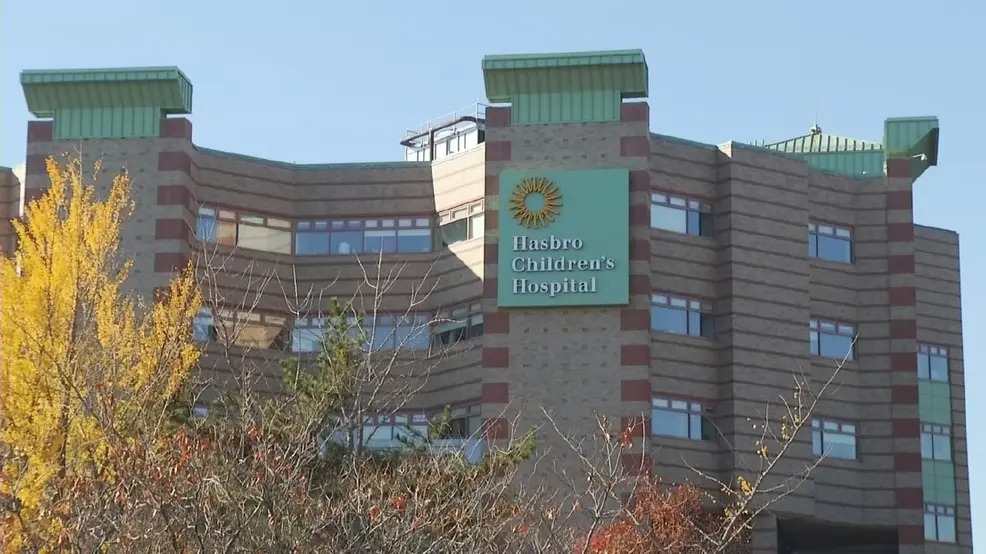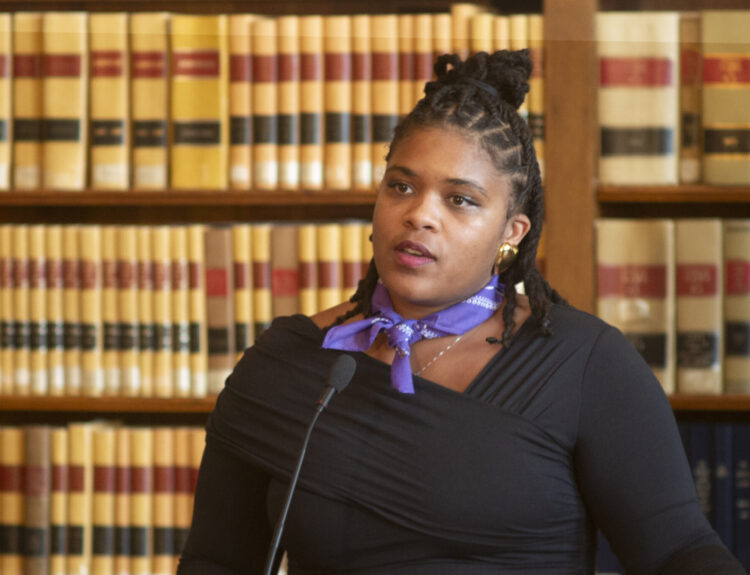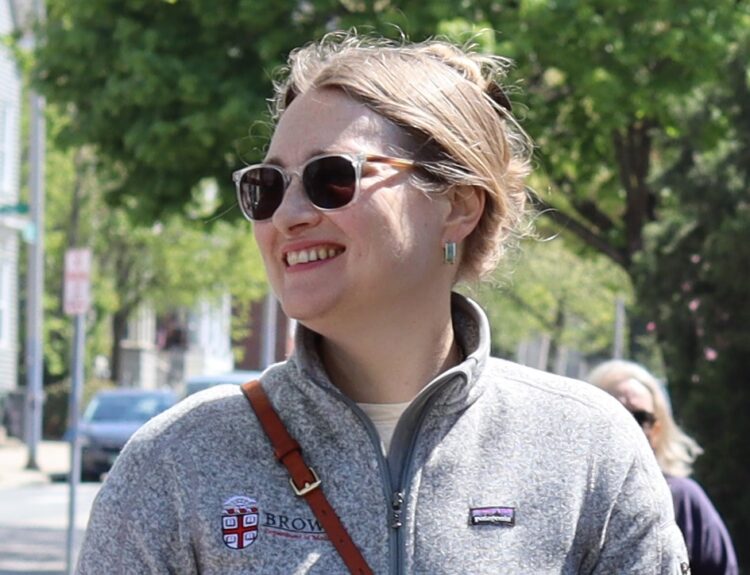Brown University Health’s SAFE services available 24 hours a day, seven days a week
PROVIDENCE – Sexual violence is demographically unbounded: no age group, economic or educational identity, or geographic location is unaffected. And these are among the reasons that Brown University Health’s SAFE program serves a vulnerable population.
The practitioners responsible for creating and overseeing the Sexual Assault Forensic Examiner (SAFE) program, as it’s formally known, nurse, Lori Clements and Dr. Susan J. Duffy, recently took the time to explain the pioneering program for Ocean State Stories.
Said Duffy: “I have been doing emergency medicine for 30 years and working in this world of responding to victims of sexual assault in pediatric and adult settings — and Rhode Island for many years was a leader in advocacy for victims, but not in a medical response,” a process that involves, among other procedures, “medical forensic care,” which can include collection of DNA for possible criminal charges against assailants.
“For many years and with many failed efforts, we weren’t able to gather the resources together to be able to do it until four years ago,” Duffy continued. Then, “I was approached by the now Brown Health leadership to see what it would take to see if we could put together an effort in Rhode Island,” the only state in the U.S. that did not have such a program, she said.
SAFE, Duffy stated, requires “advanced practice providers who do specialized training to do medical forensic exams, advocacy, and support for victims of sexual assault, which is a very time-consuming effort.”
Clements said, “I have worked here at Brown University Health for many years but also have worked as part of the Massachusetts Sexual Assault Nurse Examiner program for over 10 years. At times I have responded to cases in Massachusetts that actually occurred here in Rhode Island, but the patients sought care at an emergency department close to the Rhode Island border.”
We really need this program in Rhode Island, Clements remembers thinking. “Luckily through my work, I knew Sue here at Lifespan,” Brown University Health’s previous name. “So I was very excited to come on board to be part of starting this.”
Clements said members of the Brown group “all received the same training through the International Association of Forensic Nurses to work in this on-call role. Our team currently consists of nurse practitioners, registered nurses, and physician assistants. Some have primary roles within the Brown University Health system and some work in other roles including at universities and other local hospitals.”
SAFE services are available 24 hours a day, 7 days a week at Brown University Health emergency departments at Rhode Island Hospital, Hasbro Children’s Hospital, The Miriam Hospital, and Newport Hospital.
According to data compiled by the Rhode Island Coalition Against Domestic Violence, RICADV, Rhode Islanders in every age group “have experienced contact sexual violence, physical violence, and/or stalking victimization by an intimate partner during their lifetime.” Specifically:
• 24% of Rhode Island children have experienced “contact sexual violence, physical violence, and/or stalking victimization by” someone they knew
• 26% of Rhode Island female teens have experienced sexual violence. For male teens, the incidence is 15%. One in seven teens have experienced sexual violence.
• 14.3% of young adults age 18 to 25 reported being sexually assaulted “by an adult (or someone 5+ years older.”
RICADV notes that for all age groups: “The data are only the incidents during which an arrest was made in which children were present, and do not represent the total number of children who experienced domestic violence in their homes. More than one child may have been present at an incident.”
RICADV further notes that “many cases of sexual violence go unreported, according to many sources, with the National Rape, Abuse & Incest National Network declaring that “only 310 out of every 1,000 sexual assaults are reported to police.”
Ocean State Stories reached out to leaders of organizations involved with assisting victims of sexual and domestic violence, and those who responded universally praised SAFE.
“Programs like Brown University Health’s SAFE initiative are an important step in ensuring survivors receive trauma-informed, standards-based forensic care,” Sojourner House‘s President and CEO, Vanessa Volz, wrote in an email. “We know that across the country, access to trained examiners can be inconsistent, and sustaining these programs is an ongoing challenge. That’s why it’s encouraging to see local investment here in Rhode Island in a model that not only follows national protocols but also connects survivors with community advocates like those at Sojourner House, who can support their safety, recovery, and healing, whether or not they choose to report.”
“Day One is honored to partner with the SAFE program for acute hospital response and support to survivors of sexual and interpersonal violence,” said Michelle Loranger, Day One’s executive director. “The SAFE program has been a critically important addition in offering compassionate and specialized forensic medical services for survivors throughout Rhode Island. As the state’s designated Sexual Assault Coalition and Rape Crisis & Trauma response agency for more than 50 years, we have seen first-hand the significant enhancements and value of the SAFE program for sexual assault survivors seeking medical care.”
“I am so impressed by Brown University Health’s RI Sexual Assault Forensic Examiner Program (RI SAFE) and salute its Program Director, Forensic Nurse Lori Clements, and its Medical Director, Dr Susan Duffy, pediatric emergency medicine physician at Hasbro Children’s, who stepped up to fill an urgent need by establishing RI SAFE,” said Elizabeth Burke Bryant, Professor of the Practice of Health Services, Policy and Practice, Hassenfeld Child Health Innovation Institute, Brown University School of Public Health. “RI SAFE provides best practice, 24/7 coordinated care that ensures that sexual assault victims have immediate access to trauma-informed medical and forensic care spanning medical treatment and assistance navigating the criminal justice system.”
Said Channavy Chhay, Executive Director, Center for Southeast Asians (CSEA): “Sexual assault leaves devastating and life-long consequences for survivors. For many Southeast Asian women, these impacts are compounded by layers of historical and intergenerational trauma, cultural stigma, and fear of victim-blaming or social isolation. Too often, they suffer in silence – cut off from the mental health support, social connection, and pathways to justice they deserve. A compassionate, culturally sensitive, linguistically specific, and trauma-informed response is not only essential to ensuring reporting and prosecution, but also to helping survivors begin to heal and rebuild their lives.”
Chhay continued: “The process that follows – particularly the forensic examination – can itself be retraumatizing if not approached with empathy and cultural understanding. Safe forensic practices that create both a physically and emotionally supportive environment, coupled with aftercare that uses trauma-sensitive and culturally informed communication, are vital to recovery. Meeting this need requires more than clinical expertise: it demands investment in forensic infrastructure and training, as well as a holistic approach that centers cultural context and comprehensive victim support. Programs like Brown Health’s SAFE program are crucial to making this vision a reality for Southeast Asian survivors in Rhode Island.”
After SAFE recently received a grant from the federal Health Resources and Services Administration, the program has been recognized by the Maryland-based International Association of Forensic Nurses. “With the approval and the grant funding,” Brown Health spokeswoman Elena Falcone-Relvas informed Ocean State Stories, “we will be able to provide this education and training for nurses at other local hospitals [not affiliated with Brown to support] the improved care of this patient population throughout the state.”
Since its inception in January 2023, the program has seen approximately 330 cases, Clements told Ocean State Stories in mid-summer. However, that estimate certainly undercounts cases of assault since only “a small percentage” of victims seek care. Clements said..
Added Duffy: “One other thing that’s important is the follow-up for patients. We partner with the sexual assault follow up program run by Dr. Erica Hardy, out of Woman and Infants Hospital, and also with the Miriam Hospital infectious disease clinic for follow-up of adults.” The SAFE Program site states that it offers “equitable, trauma-informed care and advocacy for patients” with “specialized medical forensic care to adolescents and adults following a sexual assault.” It further states that “sexual assault is never your fault. If you, or someone you know, is the victim of a sexual assault, the first step is to find a safe place and then seek medical care as soon as possible.”
Anyone in immediate danger should call 911.
Call 988 if you are having thoughts of suicide or are in crisis. 988 is free, available 24/7, and confidential.
Other resources:
● BHLink: For confidential support and to get connected to care, call (401) 414-LINK (5465) or visit the BHLink 24-hour/7-day triage center at 975 Waterman Ave., East Providence. Website: bhlink.org
● The Samaritans of Rhode Island: (401) 272-4044 or (800) 365-4044. Website: samaritansri.org
● The Crisis Text Line: Text HOME to 741741 “from anywhere in the USA, anytime, about any type of crisis.”
● Butler Hospital Behavioral Health Services Call Center: Available 24/7 “to guide individuals seeking advice for themselves or others regarding suicide prevention.” (844) 401-0111
Editor’s note: Data were compiled from multiple sources, including the Centers and Disease Control’s National Intimate Partner and Sexual Violence Survey; CDC-Kaiser Permanente Adverse Childhood Experiences (ACE) Study; the Rhode Island KIDS COUNT 2023 Fact Book; and the Rhode Island Young Adult Survey 2020 from the Rhode Island Department of Behavioral Healthcare, Developmental Disabilities & Hospitals.
Bryant and Chaay are members of Ocean State Stories’ Advisory Board.






